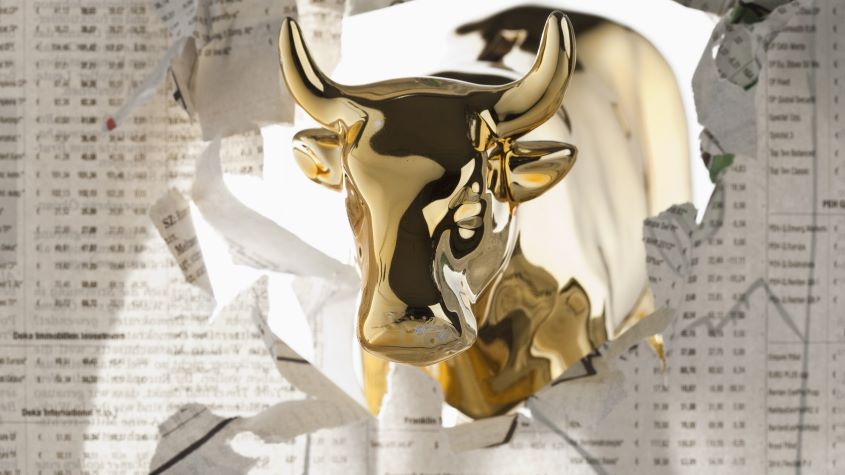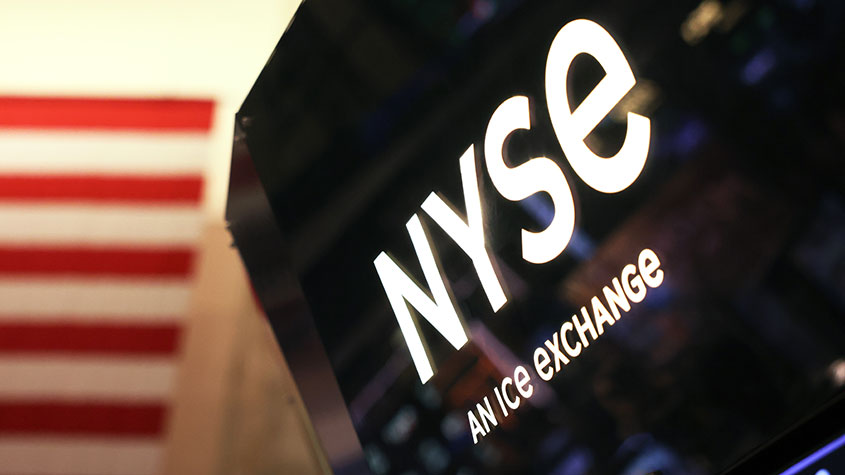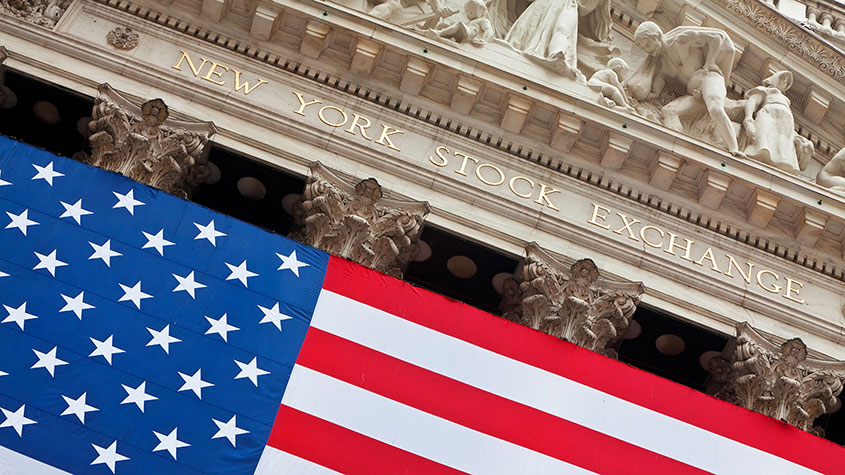America's bull market gets vertigo
America's benchmark S&P 500 stockmarket index has been in a bull market since March 2009 – or just over 3,400 days. It is only 50 days short of the longest post-1945 bull run, October 1990 to March 2000.

Get the latest financial news, insights and expert analysis from our award-winning MoneyWeek team, to help you understand what really matters when it comes to your finances.
You are now subscribed
Your newsletter sign-up was successful
Want to add more newsletters?

Twice daily
MoneyWeek
Get the latest financial news, insights and expert analysis from our award-winning MoneyWeek team, to help you understand what really matters when it comes to your finances.

Four times a week
Look After My Bills
Sign up to our free money-saving newsletter, filled with the latest news and expert advice to help you find the best tips and deals for managing your bills. Start saving today!

US stocks are heading for a post-war record. The benchmark S&P 500 index, which sets the tone for the rest of the world, has been in a bull market since March 2009 or just over 3,400 days, as stockbroker AJ Bell points out. It is only 50 days short of the longest post-1945 bull run, October 1990 to March 2000. And having risen by 400%, it has easily eclipsed the 283% average rise of the ten previous post-war bull runs. It may well get through the next three months without slipping by 20% which would constitute a bear market and thus break the record. But then? "The list of headwinds is long and daunting," says Fidelity's Tom Stevenson in The Daily Telegraph.
A sea of troubles
Global stocks have suffered their worst first half since 2010, with the MSCI World Index of developed-country equities slipping by 1.3%; Europe and Japan finished down, while the S&P 500 ticked up. The global economy has lost some momentum, with European and Japanese data proving disappointing of late. This is partly due to the deteriorating outlook for global trade their economies and stockmarkets are more dependent on exports than America's. With Europe this week threatening to retaliate against probable US tariffs on European cars, "we slip, ever more irredeemably", towards an "outright" trade war, says Jeremy Warner in The Sunday Telegraph.
The rise in the oil price to a four-year high is another worry, as it gradually slows global consumption, while in the past few days investors have started to fret about China again. Its stocks have slipped into a bear market and the yuan has fallen sharply. These are "echoes of the plunge in the Chinese market in 2015" when the devalued yuan "threatened to trigger capital flight", says Stevenson. Europe's reappearing euro crisis, meanwhile, is doing nothing to alleviate the increasingly jittery mood in world markets.
MoneyWeek
Subscribe to MoneyWeek today and get your first six magazine issues absolutely FREE

Sign up to Money Morning
Don't miss the latest investment and personal finances news, market analysis, plus money-saving tips with our free twice-daily newsletter
Don't miss the latest investment and personal finances news, market analysis, plus money-saving tips with our free twice-daily newsletter
Earnings growth is slowing
The economic and earnings backdrop isn't looking too hot, either. The artificial stimulus from the Trump administration's corporate tax cut will fade in the next year or so, with earnings-per-share growth dropping back from 21% in 2018 to 10% in 2019. Valuations are sky-high. And while the US Federal Reserve is only tightening monetary policy very gradually, the prospect of a sharp hike, destabilising markets and indebted corporations, looms over equities. The labour market keeps tightening, with the share of small businesses raising compensation at a 34-year high. "Accelerating pay rates are likely to provide a big surprise in the second half," David Levy of the Jerome Levy Forecasting Centre told Barron's keep a close eye on Friday's labour market data. On the other hand, companies could decide they can't pass on higher labour costs, and absorb them instead, denting their already historically high margins. That won't do earnings any favours either. Whether it ends with a bang or a whimper, the S&P 500's long bull market is starting to run out of puff.
Get the latest financial news, insights and expert analysis from our award-winning MoneyWeek team, to help you understand what really matters when it comes to your finances.

-
 Should you buy an active ETF?
Should you buy an active ETF?ETFs are often mischaracterised as passive products, but they can be a convenient way to add active management to your portfolio
-
 Power up your pension before 5 April – easy ways to save before the tax year end
Power up your pension before 5 April – easy ways to save before the tax year endWith the end of the tax year looming, pension savers currently have a window to review and maximise what’s going into their retirement funds – we look at how
-
 Profit from MSCI – the backbone of finance
Profit from MSCI – the backbone of financeAs an index provider, MSCI is a key part of the global financial system. Its shares look cheap
-
 Is it different this time for Japanese stocks?
Is it different this time for Japanese stocks?Analysis Nikkei 225 Index has jumped 19.8% this year, and there are signs the rally could continue.
-
 The highest yielding S&P 500 Dividend Aristocrats
The highest yielding S&P 500 Dividend AristocratsTips Dividends are a key component of investment returns in the long-term. A portfolio of dividend aristocrats is a great way to build wealth and a sustainable income stream.
-
 2023 will be a bumper year for stocks. Here’s how to play the rally
2023 will be a bumper year for stocks. Here’s how to play the rallyTips Dominic Frisby explains why he thinks the market rally could have further to run in 2023 despite macroeconomic headwinds
-
 Crash? What crash?
Crash? What crash?Sponsored October is often said to be a month of stockmarket crashes. But that's not true for this year, says Max King. A host of positive triggers are lining up for equities, says Max King.
-
 The US stock market – should you put more into the S&P 500?
The US stock market – should you put more into the S&P 500?Analysis Everything went right for the US stock market in the past decade. It will be hard to repeat that as interest rates rise. We look at how attractive the S&P 500 is right now.
-
 The end of cheap money hits the markets
The end of cheap money hits the marketsNews Markets have swooned as central banks raise interest rates, leaving the era of cheap money behind.
-
 Seoul attempts to close the “Korea discount” for stocks
Seoul attempts to close the “Korea discount” for stocksNews South Korean stocks suffer from the “Korea discount” – with the country still classified as an emerging market, investors are reluctant to pay a premium.